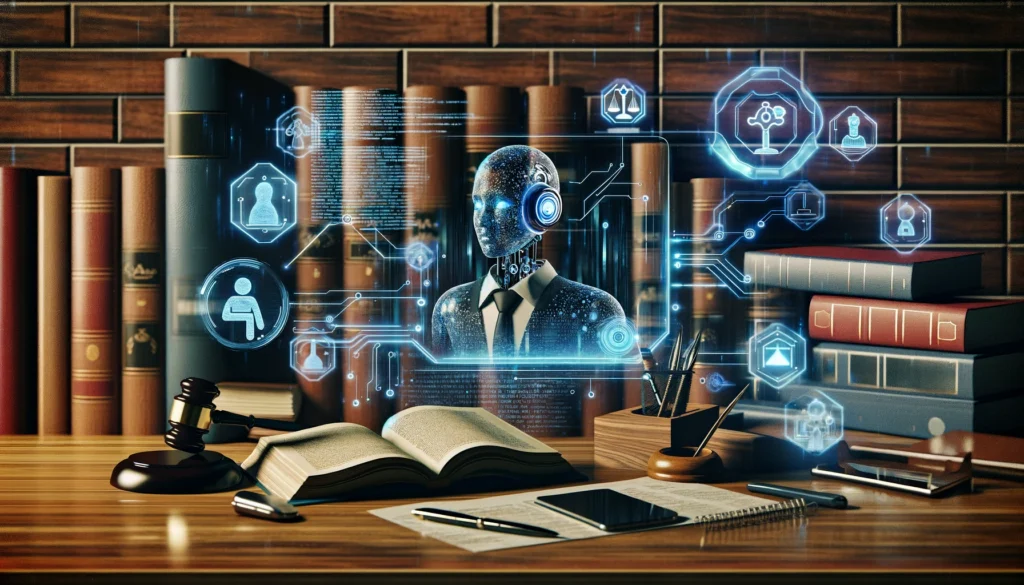
Unveiling the Digital Estate: Setting the Stage for Modern Estate Planning
The digital era has brought about unprecedented changes in how assets are perceived and managed. Traditionally, estate planning focused primarily on physical and financial assets; however, the proliferation of digital assets has necessitated an evolution in estate planning strategies. From social media accounts to cryptocurrency, today’s “digital estates” represent significant value, both sentimental and monetary. This paradigm shift compels legal professionals to integrate digital assets into comprehensive estate plans, ensuring that all facets of a client’s estate are meticulously addressed.
As we delve into the intricacies of digital estates, it’s crucial to recognize the role of technology in simplifying and enhancing modern estate planning processes. One such technological marvel is ChatGPT, an AI tool that is revolutionizing how paralegals and attorneys manage estate planning tasks.
Harnessing the Power of ChatGPT for Paralegals
ChatGPT, an advanced AI language model developed by OpenAI, possesses capabilities that were unthinkable a decade ago. With its ability to generate human-like text, analyze vast amounts of data, and produce precise legal documentation, ChatGPT is a formidable ally for paralegals navigating the complexities of estate planning.
Utilizing AI in estate planning offers numerous benefits:
- **Efficiency:** AI can instantly process and categorize extensive information, reducing the monotonous aspects of estate planning.
- **Accuracy:** With proper prompts, ChatGPT can minimize human errors associated with drafting and reviewing legal documents.
- **Customization:** AI can tailor documents and communications based on specific client needs, ensuring personalized service.
Integrating ChatGPT into estate planning practices can significantly enhance operational efficiency, allowing paralegals to focus on more nuanced legal tasks.
Leveraging ChatGPT’s full potential requires specific approaches, particularly in building a robust digital asset inventory.
Building a Robust Digital Asset Inventory: A ChatGPT-Powered Approach
A comprehensive digital asset inventory is paramount for effective estate planning. Yet, cataloging digital assets is often intricate due to their variety and distribution across multiple platforms. ChatGPT can streamline this process through guided prompts that ensure no asset is overlooked.
Effective techniques for generating a digital asset inventory include:
- **Client Interaction:** Initiate detailed conversations with clients to uncover all possible digital assets. Prompt examples:
- “List all email accounts you have, including the service provider and any linked accounts.”
- “Describe any online banking or financial investment accounts you manage.”
- **Categorization:** Once gathered, organize assets into categories such as financial, social media, subscriptions, and digital content. Prompt for category clarity:
- “Separate all social media accounts (e.g., Facebook, Twitter) from your financial accounts (e.g., PayPal, online banking).”
- **Detailing Assets:** For each category, gather specifics such as account credentials, associated email addresses, and the nature of content or value held. Example prompt:
- “For each cryptocurrency wallet, list the currency type, private key storage method, and platform used.”
By leveraging the structured and intelligent querying ability of ChatGPT, paralegals can construct a detailed and exhaustive digital asset inventory, laying a solid foundation for precise legal documentation.
Simplifying Legal Documentation: Drafting with Precision and Speed
Once a comprehensive digital asset inventory is established, the next step involves drafting accurate legal documents. ChatGPT can be instrumental in generating these documents swiftly and accurately, incorporating necessary legal jargon and client-specific details.
Effective prompts for drafting legal documents include:
- “Draft a will clause concerning the distribution of cryptocurrency assets, ensuring compliance with applicable state laws.”
- “Generate a detailed letter of instruction covering the management of digital photo archives and social media profiles.”
Integrating complex legal terminology is another area where ChatGPT excels. By customizing model clauses with specifics from the digital asset inventory, it can create tailored, legally sound documents that meet exacting standards.
Moreover, AI can expedite the review process, flagging potential inconsistencies or omissions. This precision, coupled with speed, can be a game-changer for paralegal efficiency, leading seamlessly to safeguarding digital estates.
Navigating Privacy and Security: Safeguarding Digital Estates
Ensuring client confidentiality and the security of digital assets is paramount in estate planning. Utilizing AI requires robust data protection strategies to maintain trust and compliance.
Techniques to safeguard digital estates include:
- **Encryption:** Encrypt sensitive information to protect against unauthorized access.
- **Compliance Checks:** Use ChatGPT to regularly review compliance with data protection laws.
- **Security Audits:** Conduct periodic AI-driven audits to identify and mitigate security vulnerabilities.
ChatGPT can assist in highlighting potential security gaps, providing proactive solutions, and ensuring continuous data protection, thereby fortifying the digital estate’s defenses.
Effective estate planning also hinges on clear client communication, an area where ChatGPT’s capabilities truly shine.
Efficient Client Communication: Streamlining Interactions with AI Assistance
Clear and concise communication with clients is vital to maintaining transparency and trust. ChatGPT can aid in crafting thoughtful client communications that are easy to understand yet comprehensive.
Example prompts include:
- “Compose a client email summarizing the key points of their digital asset inventory.”
- “Generate responses to common inquiries about the implications of including digital assets in estate plans.”
Moreover, predefined prompts allow for swift responses to routine questions, ensuring clients receive timely and accurate information, enhancing their overall experience.
Keeping abreast of rapid technological and legal changes is another crucial aspect of modern estate planning.
Ongoing Evolution: Keeping Up with Digital Trends and Legislation
Staying updated with the ever-evolving digital landscape and corresponding legal frameworks is indispensable. ChatGPT can serve as a valuable tool in monitoring and adapting to new trends and legislation.
- **Legal Precedent Monitoring:** Use AI to track emerging legal cases and integrate relevant changes into practice.
- **Trend Analysis:** Leverage AI for analyzing global digital asset trends and implications for estate planning.
This dynamic adaptability ensures that legal professionals remain at the forefront of estate planning practices.
Maximizing ChatGPT’s utility also involves tailoring it to specific workflow requirements, driving peak productivity.
Maximizing Productivity: Customizing ChatGPT for Your Workflow
Every paralegal’s workflow is unique; thus, customizing ChatGPT interactions can significantly enhance productivity.
Practical customization techniques include:
- **Creating Templates:** Develop templates for recurring tasks such as digital asset inventories and standard clauses.
- **Shortcuts:** Implement AI-driven shortcuts to expedite repetitive communication and documentation tasks.
By tailoring AI tools to specific needs, paralegals can streamline their workflow, dedicating more time to intricate legal considerations.
Reflecting on the integration of AI highlights its transformative potential for the future of estate planning.
Final Thoughts: Future of Estate Planning in the Digital Age
The integration of AI, particularly ChatGPT, into estate planning represents a monumental shift in legal practice. The efficiency, accuracy, and adaptability of AI not only streamline traditional tasks but also pave the way for future innovations.
As digital assets continue to evolve, so too will the tools and methods used to manage them. Embracing these technological advancements is not just beneficial—it is imperative for any forward-looking legal professional.


